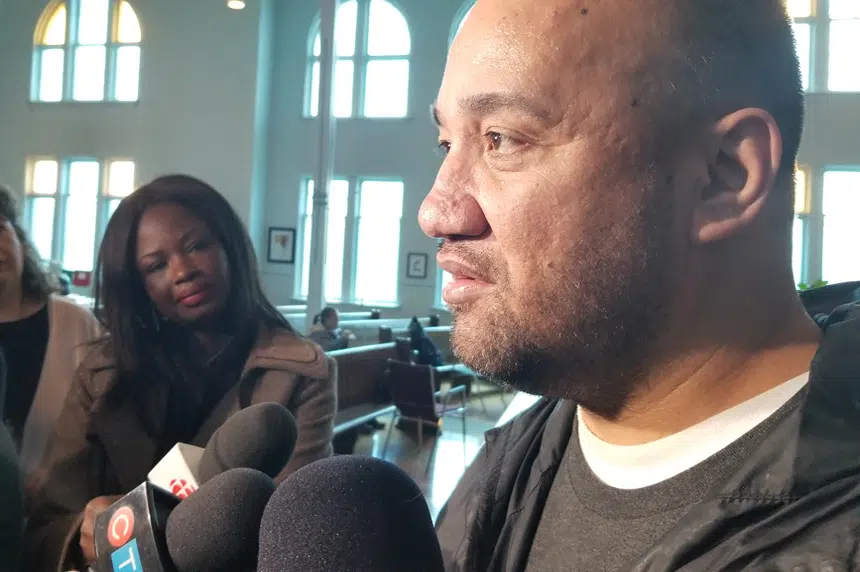A Saskatoon-based group that has spent 17 years helping get people out of gangs is calling for governments to step up with funding for a provincewide anti-gang strategy.
Str8 Up used a federal grant to bring in University of Calgary sociologist Robert Henry in 2018 and have him consult with 65 communities. On Tuesday, the group unveiled a report detailing its proposal at an event at Saskatoon’s St. Thomas Wesley United Church.
Henry said a key message he repeatedly got was that communities want to direct their own programming and tailor it to their specific needs.
“They don’t want the push from the police to be taking the lead. They understand they want the police and corrections to be a part of it, but not the focus of it,” he said.
The plan calls for the creation of a network of community-based outreach and support services, with an emphasis on preventing children and youth from joining gangs and providing help for gang members trying to get out. The report stressed that those are more cost-effective strategies than relying on increased police presence and more and longer terms of incarceration.
Shane Partridge, an ex-gang member who was helped by Str8 Up, said his own journey to a law-abiding life would have been far shorter had he been offered the kinds of supports outlined in the plan.
“If there was a strategy like this in place when I was first trying to get out of trouble, I would have reached help the first time around,” he said.
While the report found communities wanted their own agencies and programs, they also expressed a desire to have Str8 Up be available as a hub of information and expertise. The report also calls for regional outreach centres to be established in Regina, Saskatoon, North Battleford and Prince Albert.
Str8 Up president and co-founder Stan Tu’Inukuafe noted that the organization currently has two paid staff members and relies on a network of volunteers. He said the organization is funded through a patchwork of donations and one-time government grants and needs stable, predictable funding in order to step into the role outlined in the proposed strategy.
He suggested a pool of $11.9 million committed to Saskatchewan in the 2019 federal budget for anti-gang and anti-gun crime efforts could be one way to provide that funding. While he stressed Str8 Up wasn’t asking for anything close to the entire sum, he noted that so far, all that has been made available are six one-time grants of $20,000 apiece.
“Really, you can’t hire anyone with $20,000 and so what you do with $20,000 is, really, make brochures,” he said.
Tu’Inukuafe said the relatively small amount of grant money committed by the province so far wasn’t encouraging, but he hoped officials at both the provincial and federal levels could be swayed to accept the proposal.
“I’m still trying to figure out what that message is. I’m hoping, in good faith, that they were just trickling out that amount and that hopefully, in the future they’re going to allocate more,” he said.
More information on the proposed anti-gang strategy is available at a specially created website.











